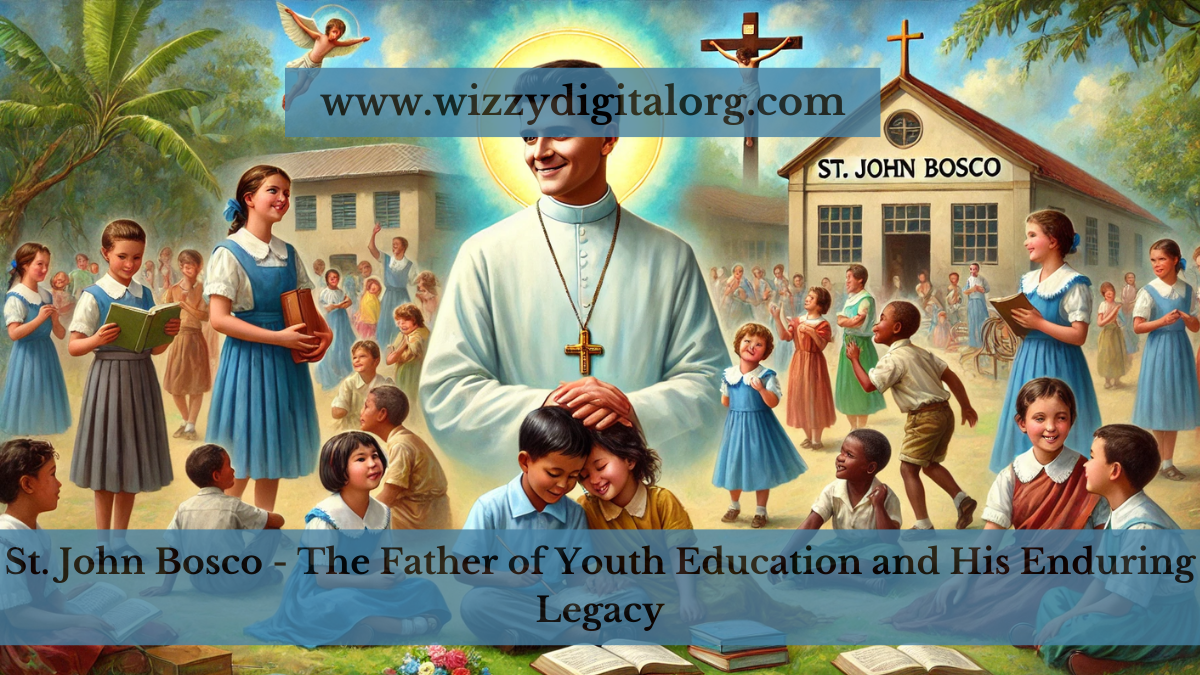St. John Bosco – The Father of Youth Education and His Enduring Legacy
St. John Bosco, lovingly known as Don Bosco, was an Italian priest, educator, and saint whose life’s mission revolved around uplifting disadvantaged youth. Through his innovative educational methods and deep spirituality, he left an indelible mark on the world. Today, he is remembered as a pioneer of modern Catholic education and a patron saint of educators and young people.
For those pondering the phrase, “St. John Bosco I haven’t signed his passport yet, Davico,” it evokes curiosity and invites reflection. While its meaning may vary depending on context, it could symbolize an ongoing journey, a spiritual readiness, or unfinished work—much like St. John Bosco’s continuous impact even after his passing.
Early Life and Background
Born on August 16, 1815, in the small Italian hamlet of Becchi, John Bosco grew up in poverty. His father passed away when he was just two years old, leaving his mother, Margaret, to raise him and his siblings. Despite their hardships, Margaret’s strong faith laid the foundation for John’s future mission.
From an early age, John displayed remarkable kindness and intelligence. One of the most significant events of his childhood was a vivid dream at the age of nine. In this dream, he saw a group of rowdy boys who were transformed by kindness and guidance. A figure in the dream, believed to be the Virgin Mary, encouraged John to dedicate his life to educating and uplifting youth.
This dream would shape his entire life, setting him on a path of service that would inspire countless others.
Path to Priesthood
John Bosco’s journey to becoming a priest was not easy. Financial struggles made formal education a distant dream, but his determination was unshakable. He worked tirelessly, taking on various jobs to fund his studies. Along the way, mentors recognized his talent and guided him toward his goal.
In 1841, at the age of 26, John Bosco was ordained as a priest. He began working in Turin, where industrialization had led to widespread poverty and the neglect of young people. Witnessing the plight of these children, many of whom were orphaned and homeless, he knew he had found his calling.
Mission and Vision
St. John Bosco’s mission was simple yet revolutionary: to save the souls and improve the lives of youth, particularly those marginalized by society. He firmly believed in a preventive system of education based on three principles: reason, religion, and loving-kindness.
- Reason: Teaching through logic and understanding, rather than punishment.
- Religion: Instilling a deep faith and moral compass in children.
- Loving-Kindness: Creating a nurturing environment where students felt valued and supported.
Don Bosco often said, “It is not enough to love the young; they must know that they are loved.” This compassionate approach became the cornerstone of his work.
Founding of the Salesians
In 1859, St. John Bosco established the Salesians of Don Bosco, named after St. Francis de Sales, a saint known for his gentle and compassionate approach. The Salesians were a congregation of priests and brothers dedicated to educating and caring for young people, especially the poor.
Later, he founded the Daughters of Mary Help of Christians, a counterpart organization for women, to expand his mission further. Today, the Salesian family operates in over 130 countries, continuing Don Bosco’s work of education, evangelization, and social upliftment.
Major Accomplishments
St. John Bosco’s life was filled with remarkable achievements. He established numerous schools, orphanages, and vocational training centers, providing practical skills and moral guidance to thousands of young people. His legacy includes:
- The creation of technical schools that prepared students for real-world employment.
- A network of youth clubs that offered spiritual and recreational activities.
- Groundbreaking methods in education, which prioritized kindness over punishment.
Spiritual Teachings and Legacy
St. John Bosco was deeply spiritual, and his teachings reflect his unwavering faith. He emphasized the importance of living a joyful, sin-free life. One of his most famous sayings, “Run, jump, shout, but do not sin,” captures his belief in balancing fun and morality.
He also had a profound devotion to the Virgin Mary, often invoking her as Mary Help of Christians. This devotion became a pillar of the Salesian spirituality and remains central to their mission today.
Cultural and Global Impact
The influence of St. John Bosco extends far beyond his lifetime. His innovative approach to education has inspired countless educators, social workers, and religious leaders. The Salesians of Don Bosco now serve millions worldwide through schools, orphanages, and youth centers.
His feast day, celebrated on January 31, is a reminder of his enduring contributions to the Church and society. His canonization in 1934 affirmed his status as a saint and a model for those working in youth ministry.
Unusual or Lesser-Known Stories
St. John Bosco’s life is filled with fascinating stories, including accounts of mystical dreams and miracles. These dreams often guided his decisions and inspired his followers.
For example, he once dreamed of a large ship navigating stormy seas, symbolizing the Church’s resilience amidst challenges. Such dreams were seen as prophetic and further solidified his reputation as a man of God.
Practical Lessons and Modern Relevance
Don Bosco’s life offers valuable lessons for educators, parents, and mentors. His emphasis on patience, understanding, and compassion remains relevant today. His methods serve as a guide for creating nurturing environments where young people can thrive.
The global Salesian network continues to address contemporary challenges, from education access to youth unemployment, ensuring that Don Bosco’s vision remains alive.
Reflection on “St. John Bosco I Haven’t Signed His Passport Yet, Davico”
The phrase “St. John Bosco I haven’t signed his passport yet, Davico” invites introspection. It may symbolize a journey left incomplete or a spiritual readiness yet to be achieved. Just as Don Bosco’s work continues through the Salesians, this phrase could remind us that there is always more to do in emulating his example of kindness, faith, and service.
References and Further Reading
- Books: “The Life of Don Bosco” by Teresio Bosco.
- Websites: Official Salesian Missions website.
- Resources: Catholic Encyclopedia entries on Don Bosco and the Salesians.
FAQs About St. John Bosco
1. What is St. John Bosco the patron saint of?
St. John Bosco is the patron saint of apprentices, editors, publishers, schoolchildren, and young people, reflecting his lifelong dedication to the education and moral development of youth.
2. Why is St. John Bosco called Don Bosco?
In Italian, “Don” is an honorific title for priests, meaning “Father.” St. John Bosco is called Don Bosco as a sign of respect for his role as a spiritual father to the youth he served.
3. What was the significance of St. John Bosco’s dreams?
St. John Bosco experienced many vivid and prophetic dreams throughout his life, starting in childhood. These dreams often guided his mission and were seen as divine revelations, particularly those involving his work with youth.
4. How did Don Bosco fund his charitable projects?
St. John Bosco relied heavily on donations and the support of benefactors. His deep faith and charisma inspired many to contribute to his mission. He also encouraged the youth to learn trades that could help sustain their communities.
5. What is the Salesian Preventive System?
The Salesian Preventive System, developed by St. John Bosco, is an educational philosophy that focuses on guiding youth through reason, religion, and loving-kindness, emphasizing prevention of problems rather than punishment. This system is still widely used in Salesian schools and institutions worldwide.






